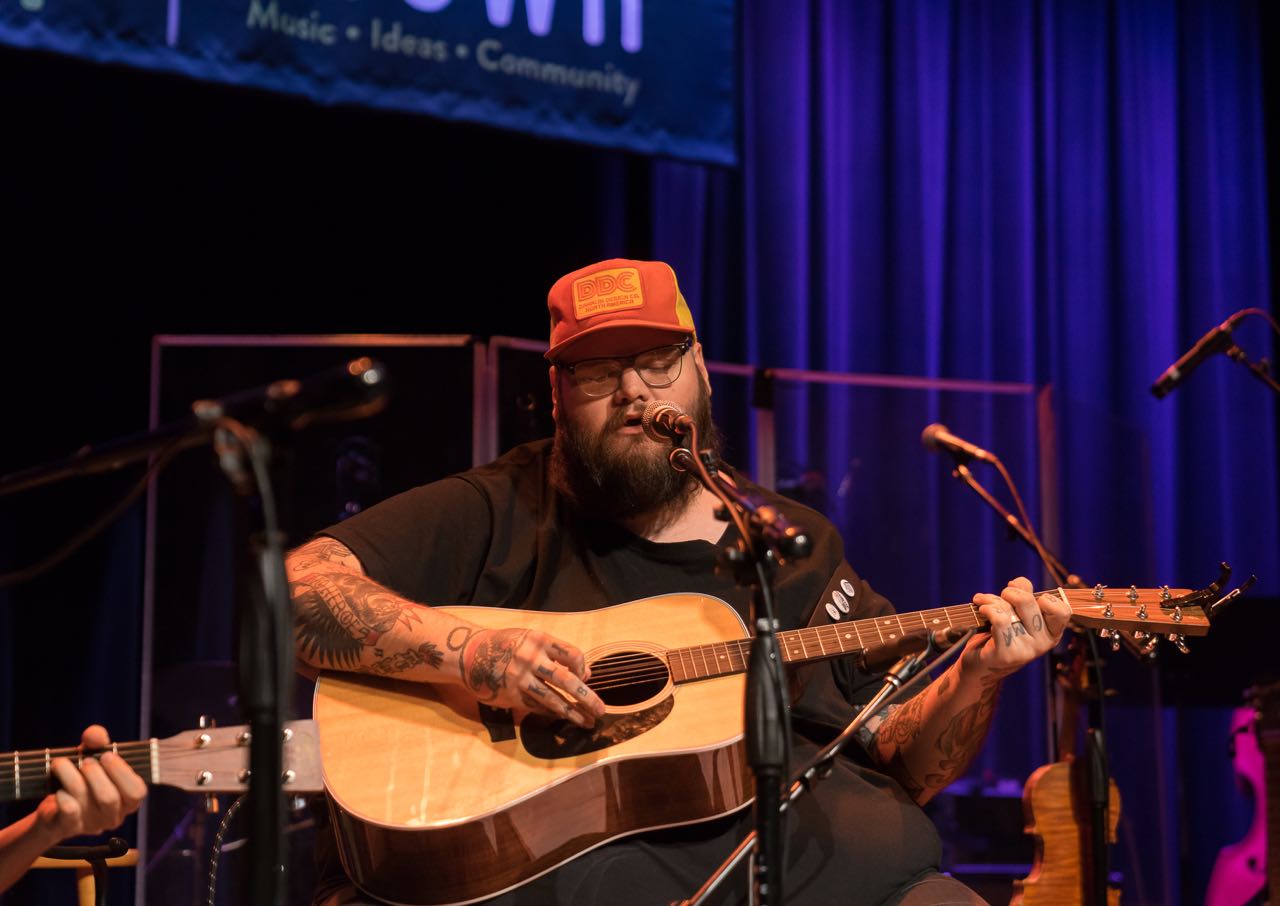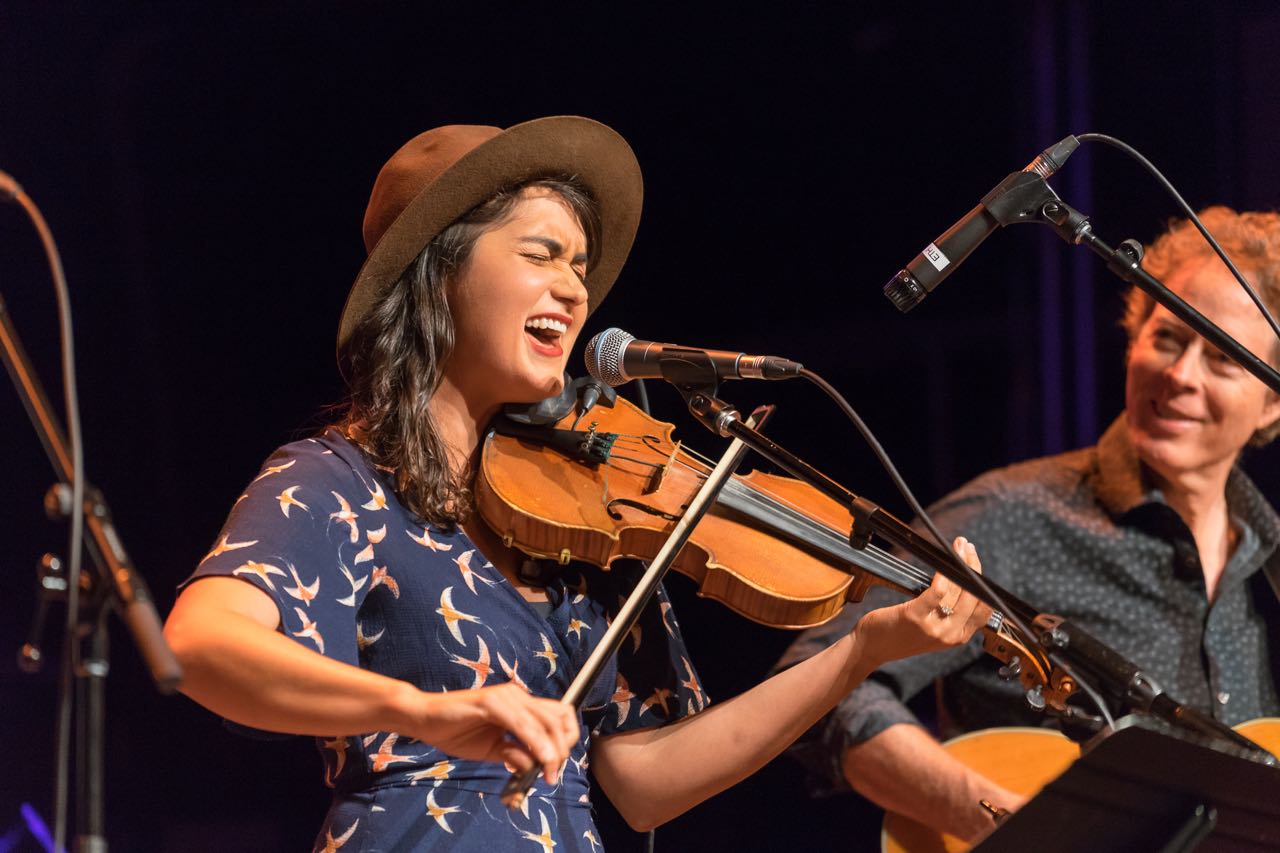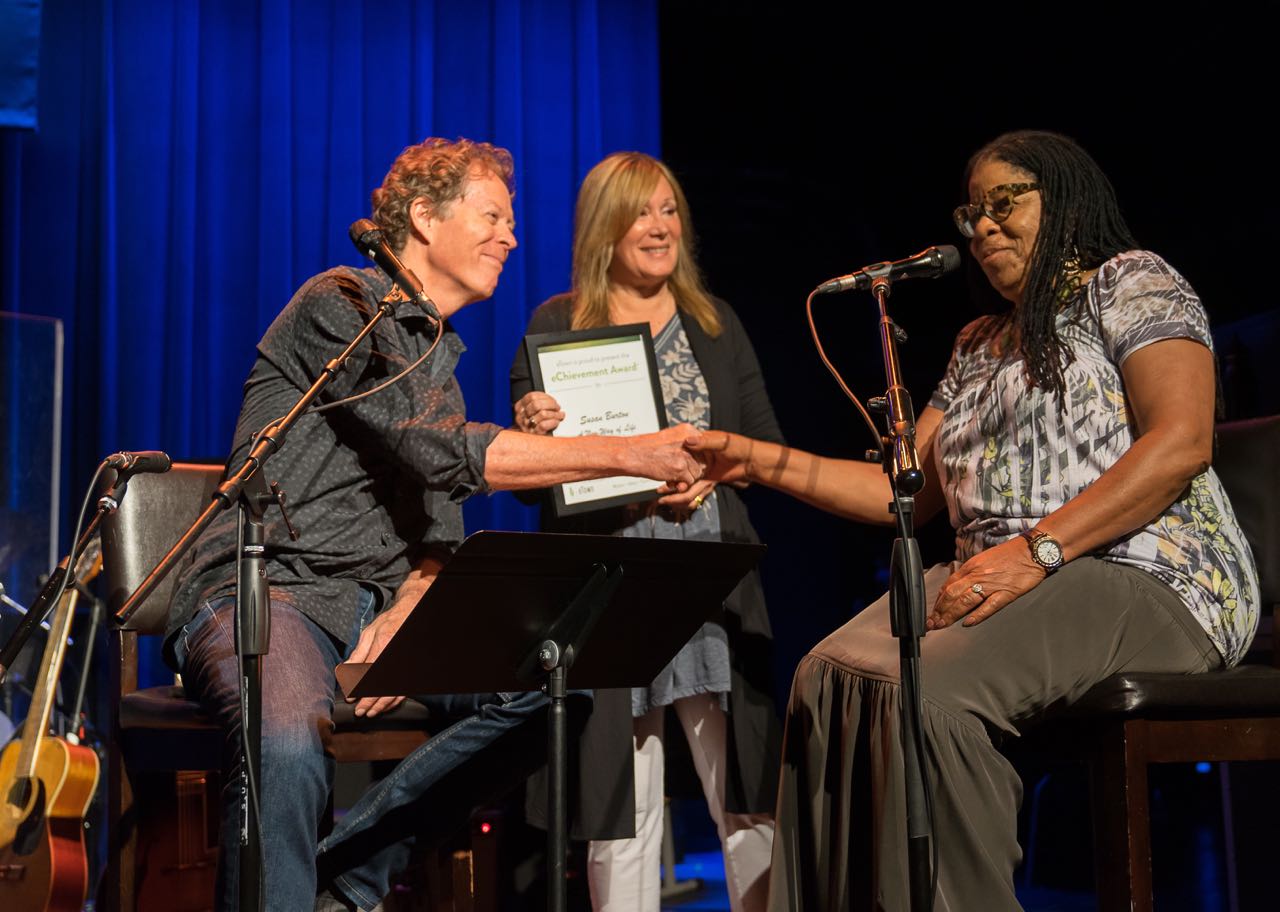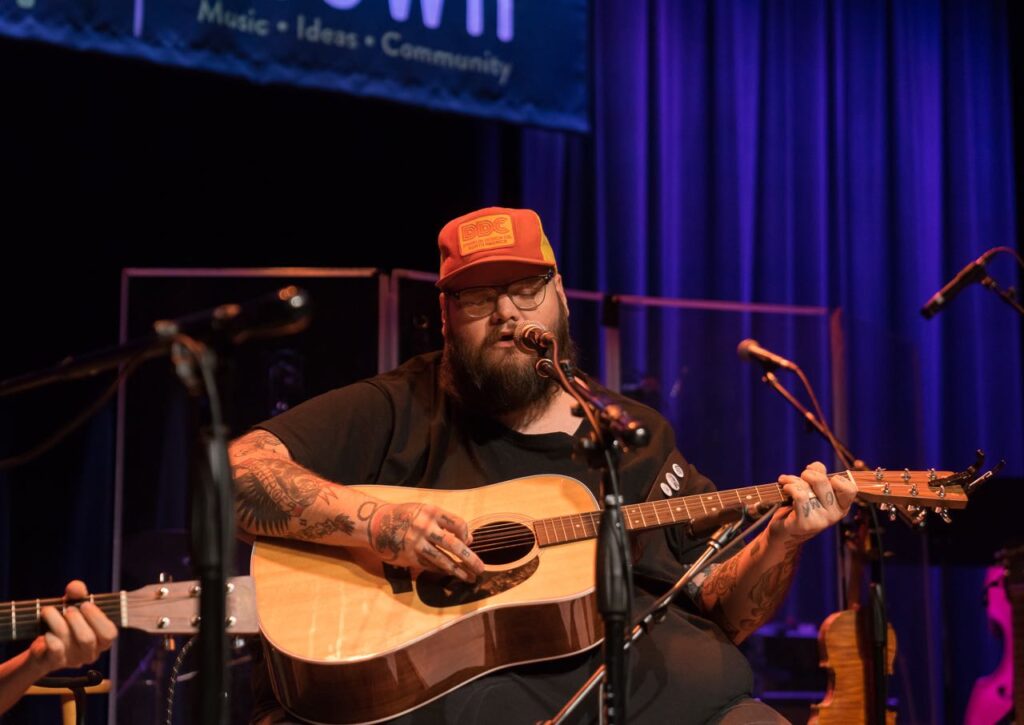The wayback machine lands us back in 2017 to revisit a show featuring John Moreland and Phoebe Hunt. Nick joins John onstage for an acoustic tour de force of Oklahoma folk-flavored original tunes and Phoebe is joined by the eTones as she lends her silky-voiced twang to the Americana lexicon. We also hear from Susan Burton, a formerly incarcerated drug addict turned activist who has used her life experience to help and reform others with similar struggles. That’s all this week on eTown!
John Moreland

John Moreland doesn’t have the answers, and he’s not sure anyone does. But he’s still curious, basking in the comfort of a question, and along the way, those of us listening feel moved to ask our own. “I don’t ever want to sound like I have answers, because I don’t,” he says. “These songs are all questions. Everything I write is just trying to figure stuff out.”
The New Yorker, Pitchfork, Fresh Air, Paste, GQ, and others have embraced Moreland’s meditative songs, while performances on The Late Show with Stephen Colbert, CBS This Morning, NPR Tiny Desk Concert, and more have introduced Moreland to millions. And yet, while the Tulsa-based Moreland is grateful for the respect and musical conversation he’s now having with people around the world, he is also more focused on the idea of just talking to one person––or even himself. “Through the years, I’ve felt like I’m increasingly talking to myself in my songs, more and more,” he says. “Maybe in the past, I wasn’t aware of it, but now, I am. I think doing that has helped me be less hard on myself, which makes you more generous and compassionate in general.”
That helps explain why even if Moreland is reaching out to someone else, there is no judgment. “I’m in the same boat with whoever I’m talking to,” Moreland says.
Moreland’s songs do feel intimate – like overheard conversations or solitary meditations. “I want to talk one-on-one to someone in a song,” he says. “I don’t want to address a group, really, because I think that’s when it’s easy to start pontificating – and it gets less honest.”
Letting things just be what they are is a powerful guiding force for Moreland, determining not just how he interacts with others, but how he treats himself. “When you remove boundaries and instead of holding back parts of yourself – when you say, ‘Okay, I’m going to put all of me into this,’” Moreland says, “You end up making music that nobody else could make.”
Phoebe Hunt

With their critically acclaimed 2017 release, Shanti’s Shadow, Phoebe Hunt & The Gatherers revealed an intimate inner journey through meditation and musical exploration.
“I see music, and art in general, as an opportunity to interpret and transmute the experiences we collectively encounter as we journey through life,” says Phoebe. “Through this album, it is my hope to connect as deeply as possible with the most diverse group of people I can find. It is only when we make connections with those who we cast aside as ‘other’ that we can bridge the divide so prevalent in our current reality.”
Whereas the fiddle and voice are often the final elements, or icing on the cake of a full band recording, this project explores what it sounds like when the fiddle and vocals represent the whole cake. Drawing from 30 years spent studying the violin/fiddle, Hunt interweaves her classical upbringing with Appalachian Old Time, Texas Swing and a maturity of songwriting that creates an unfiltered, raw expression dripping with palpable vulnerability.
Susan Burton

A New Way of Life’s Founder and Director Susan Burton is a formerly incarcerated woman who understands the challenges people face leaving prison. After more than 20 years cycling in and out of the criminal justice system, unable to find work, housing or addiction-recovery treatment, Susan mercifully gained freedom and sobriety in 1997 and made it her life’s work to help other women walking in her shoes.
She began by meeting women released from prison as they stepped off the prison bus, welcoming them into her home, and urging them to stay as long as necessary to put their lives back together. Susan quickly recognized that her individual efforts were not enough.
She saw that women coming home from prison faced tremendous institutional barriers: rules, laws, policies, and attitudes that operated to deny them access to employment, student loans, permanent housing, public assistance and many other services. Challenging such obstacles in isolation would be a futile exercise.
Susan came to understand that real change could only happen through a powerful, grassroots community organizing effort, one that could amass enough political power to bring an end to discriminatory practices, and shift public attitudes in a way that would break the cycle of mass incarceration, and A New Way of Life Re-Entry Project was born.
